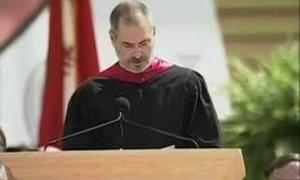Rhetorical Recap: Julian Castro’s presidential candidacy announcement speech
January 16, 2019
The speech was solid. But was solid good enough?
Julián Castro Presidential Candidacy Announcement, Guadalupe Plaza, San Antonio TX, January 12, 2019
This past Saturday Julian Castro, as his name appears on Google searches, delivered the 2020 cycle’s first presidential announcement speech in front of an assembled crowd. Castro’s campaign graphics spell his first name in white with a blue accent acute over the “a”: Julián. When Google doesn’t get your name right, you have a ways to go as a candidate.
Castro acknowledged his longshot status early in the address. “Like you, I’m no front runner,” he said to those gathered in San Antonio’s Guadalupe Plaza, the central public space of the city’s West Side, where he grew up in a largely Latino community. “But I’ve always believed that with big dreams and hard work, anything is possible.”
To get to the Plaza, Castro noted, he rode the #68 bus along with his daughter Carina and his twin brother Congressman Joaquin Castro. Facebook Live documented the journey, which recreated his childhood route to school. From the West Side Castro went on to Stanford University and Harvard Law (neither of which he mentioned), the San Antonio city council and mayoralty, and in 2014, Secretary of Housing and Urban Development.
Two years prior to his Cabinet appointment Castro delivered the keynote address at the Democratic National Convention, the same rising star slot Bill Clinton received in 1988 and Barack Obama in 2004. Obama’s speech was famously eloquent; Clinton’s, notoriously long. Castro’s 2012 remarks have gone unremembered. He reprised a nifty line from that speech to good autobiographical and thematic effect:
I said then that the American Dream is not a sprint or a marathon but a relay. My story wouldn’t be possible without the strong women who came before me and passed me the baton. Because of their hard work, I have the opportunity to stand here today.
The core paragraph of the announcement speech contained Castro’s slogan (One Nation, One Destiny) and a mission statement expressed –twice– in terms of four superlatives:
In the years to come, we must go forward as one nation, working toward one destiny. And that destiny is to be the smartest, the healthiest, the fairest, and the most prosperous nation on earth. Again, we must be the smartest, the healthiest, the fairest, and the most prosperous nation on earth. Demanding anything less is a failure of vision. Achieving anything less is a failure of leadership.
This is a meritocratic brand of progressivism. Castro believes Americans should be better and better equipped to compete in four political Olympic events.
Education came first, a nationally hallowed ladder to success. Castro extended it to low-income families in San Antonio while Mayor by persuading city voters to approve raising their taxes by one-eighth of one cent to funda successful “PreK 4 SA” initiative. In his announcement speech he proposed scaling it up into a “PreK 4 USA” program.
Castro touched briefly on the “healthiest” plank of his platform, endorsing Medicare-for-All. The “fairest” segment of the speech began with a tribute to the victims who inspired and sustain the Black Lives Matter movement, and moved on to a critique of the Trump-led immigration crackdown.
As the grandson of an undocumented orphan who arrived in San Antonio from Mexico in 1922 and someone who would, if selected, become the first Latino major-party presidential nominee in American history, Castro possessed credibility on immigration policy and the border controversy unrivaled by anyone in the anticipated Democratic field. He took aim at President Trump. He recharacterized what Trump called a crisis of national security as a crisis of leadership, echoing the phrase from his core paragraph. He termed “cruel” the forced separation of children from parents. He knew that because it had happened to his grandmother, who still cried about the experience seven decades afterward.
In the prosperity module of his speech Castro called for raising the minimum wage, assuring reproductive rights and access to reproductive health care, recommiting to the Paris accords on climate change, and defending and extending the right of workers to organize. He also devoted several paragraphs to affordable housing, an economic issue where he can claim unparalleled expertise among the set of potential nominees.
His peroration took a familiar path through high points of civil rights struggles. I found it odd that he did not include Cesar Chavez in this passage.
This was a solid but unspectacular announcement speech by a candidate who needed to make a big splash. Castro lacks name recognition beyond his city’s limits. In the GW Politics Poll’s mid-December surveyof registered voters, 58% responded “don’t know” when asked whether they had a favorable or unfavorable opinion of him, placing him near the bottom of the list of twenty potential candidates we inquired about. Castro also lacks campaign funds, having closed down his leadership PAC on principle, a move which may or may not pay off in small donations. Such a “money bomb” seems less likely to happen given his barebones campaign website and social media footprint.
It may be a regrettable consequence of our celebrity-obsessed culture that Castro campaigns for public attention in the shadows of Beto O’Rourke, a fellow Texas Democrat who is not Latino, and Alexandria Ocasio-Cortez, the Latina from New York making literal and figurative waves on the national scene. Still, neither political star is currently running for president, and either could energize the Castro campaign by endorsing him. Anything is possible.



